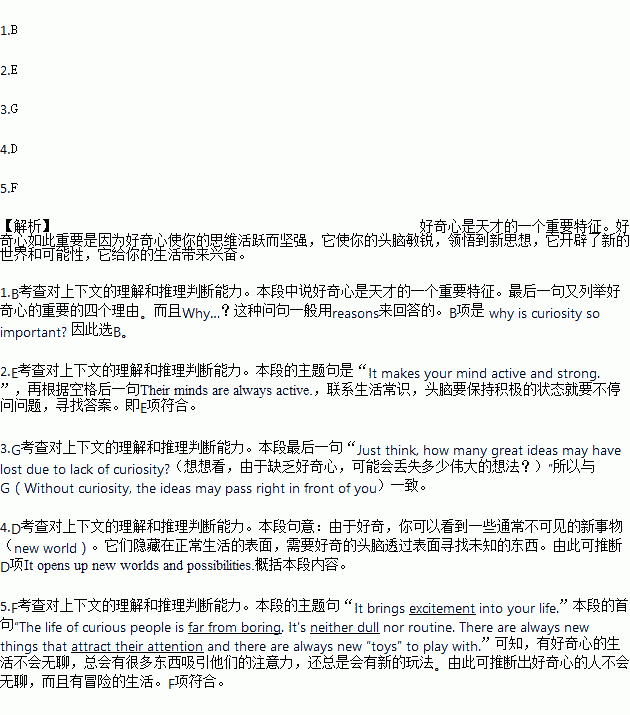题目内容
Curiosity is an important characteristic of a genius. I don’t think you can find an intellectual giant who is not a curious person. Thomas Edison, Leonardo da Vinci, Albert Einstein, Richard Feynman, they are all curious characters. Richard Feynman was especially known for his adventures which came from his curiosity. 1. Here are four reasons:
It makes your mind active and strong.
2. Their minds are always active. Since the mind is like a muscle which becomes stronger through continual exercise, the mental exercise caused by curiosity makes your mind stronger and stronger.
It makes your mind observant of new ideas.
When you are curious about something, your mind expects new ideas related to it. When the ideas come they will soon be recognized. 3. This is because your mind is not prepared to recognize them. Just think, how many great ideas may have lost due to lack of curiosity?
4.
By being curious you will be able to see something new that is normally not visible. They are hidden behind the surface of normal life, and it takes a curious mind to look beneath the surface and discover the unknown.
It brings excitement into your life.
The life of curious people is far from boring. It’s neither dull nor routine. There are always new things that attract their attention and there are always new “toys” to play with.5.
A. So is curiosity that important?
B. But why is curiosity so important?
C. It leads you to a new and exciting life.
D. It opens up new worlds and possibilities.
E. Curious people always ask questions and search for answers.
F. Rather than get bored, curious people have an adventurous life.
G. Without curiosity, the ideas may pass right in front of you and yet you miss them.


